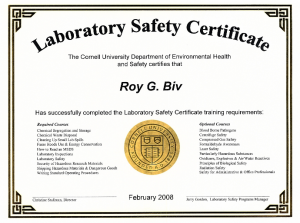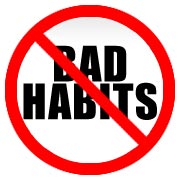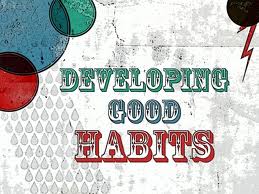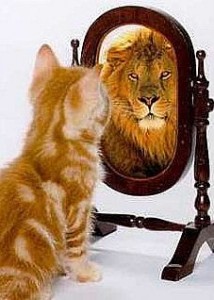
by cjxpadmin | Aug 1, 2012 | August 2012 Magazine, Job Readiness
Culture at Work
Culture is at work every day and while most people think of culture as a way to distinguish their membership to an ethnic group, they seldom think of it as having an impact at their job or their interviewing process. When you apply to a job, you are automatically giving the impression that you think you would be a good fit within the company. Most  people only look at the salary and benefits being offered and never stop to think how well they would conform to the potential organization. Questions that you should ask yourself when applying for a job is, “How does the organization treat their employees or how are the employees motivated?” Organizational culture is a system of shared meaning held by members that make it unique from other organizations. In order for you to be successful at a job interview, you need to do your research and find out what kind of culture the company enforces so that you can answer interview questions in a certain way, the correct way. Job satisfaction is directly linked to how well you fit in at your work.
people only look at the salary and benefits being offered and never stop to think how well they would conform to the potential organization. Questions that you should ask yourself when applying for a job is, “How does the organization treat their employees or how are the employees motivated?” Organizational culture is a system of shared meaning held by members that make it unique from other organizations. In order for you to be successful at a job interview, you need to do your research and find out what kind of culture the company enforces so that you can answer interview questions in a certain way, the correct way. Job satisfaction is directly linked to how well you fit in at your work.
Seven characteristics that define culture at an organization are:
* innovation and risk taking
* attention to detail
* outcome orientation
* team orientation,
* aggressiveness, and
* stability.
Innovation and Risk Taking is the degree to which employees are encouraged to be innovative and to take risks. If you like to take risks at your job or you are very innovative, then, you must find out if the job you are applying to encourages their employees to function in that particular manner.
Attention to Detail is the degree to which employees are expected to exhibit precision, analysis, and to details. If you are a person who likes doing intense research or you love to analyze the logistics and details, then, an organization that motivates their employees to pay attention to detail would be a good fit for you.
Outcome Orientation is the degree to which management focuses on results or outcomes rather than on the processes used to achieve those outcomes. People who pay attention to the big picture or the end result of a project would do well in a company that has strong outcome orientation. People orientation is the degree to which management focuses on your ability to get along with others in the company and with the public. Organizations like Disney and Public Relation companies are known to value this particular characteristic.
 Team Orientation is the degree to which work activities are organized around teams, rather than individuals. This
Team Orientation is the degree to which work activities are organized around teams, rather than individuals. This
characteristic is where most people fall short because a lot of people are hesitant about working in groups.
Aggressiveness is the degree in which people are motivated to be aggressive and competitive, rather than easy going. People who are not competitive would probably have low job satisfaction versus people who thrive on competition.
 Stability is the degree to which organizational activities emphasize maintaining the status quo and contrast to growth. Companies that are high in stability are less open to change and different innovative ideas so beware if you are the type of person who likes to mix things up a little bit.
Stability is the degree to which organizational activities emphasize maintaining the status quo and contrast to growth. Companies that are high in stability are less open to change and different innovative ideas so beware if you are the type of person who likes to mix things up a little bit.
Applying to different companies should not be a random process because your happiness and satisfaction depend on how well you pick the companies you want to apply to. Some companies are strong in more than one area listed above and some are only strong in one of the characteristics listed so be aware. Your job is to decide what you value and would like to deal with on a daily basis.
 If you like companies that value risk taking and innovation or stability or perhaps you prefer team orientation, it is up to you to determine how you would like to function at your work and to find a company that allows and encourages you to do so. Read daily news about the companies you are applying to because that could give you some insight as to how they appear to the public eye.
If you like companies that value risk taking and innovation or stability or perhaps you prefer team orientation, it is up to you to determine how you would like to function at your work and to find a company that allows and encourages you to do so. Read daily news about the companies you are applying to because that could give you some insight as to how they appear to the public eye.
Another way to find out about the company is to use networking. Never underestimate networking because talking to people who work for potential companies can give you insight that is not shown to the general public. Some companies that have strong organizational cultures are Google, Hewlett Packard, and Dell. The bigger the company, the easier it will be to research what kind of company they are. Remember do your research, know what you want, and know your potential company and employer. △


by cjxpadmin | Aug 1, 2012 | August 2012 Magazine, This Issue's FEATURE
Creating Your Future
In creating your future, you need to learn how to choose to be the YOU you want to be!
We are not our actions, because we can change our actions and still be ourselves. For the same reason, we are not our thoughts, our opinions, our beliefs or our feelings. We can change all of those and still be ourselves. We are human beings. We have the power to create ourselves.
As we begin to explore the skill of becoming ourselves, it is very useful to see what being skillful is about. It is about having choices and flexibility. We can adapt, we can change and we can be bigger than we ever thought possible. This is personal skill, the skill to create ourselves, to be the people we want to be, rather than the people we were.
choices and flexibility. We can adapt, we can change and we can be bigger than we ever thought possible. This is personal skill, the skill to create ourselves, to be the people we want to be, rather than the people we were.
So far, we have seen that our lives have been shaped by the past. We see that it is possible to become aware of ourselves as we act in the present. Now we will see how it is possible to create our own future. For most people, the future is a blank. We expect it to be more of the same or expect it to just happen.
It sure is hard to see into the future. There are so many possibilities and paths to follow. Who knows what’s going to happen to us? Are we as helpless as a little rowboat being tossed about in the ocean? Or are we more like the captains of our own ships, steering ourselves from one major point in life to the next?
 Where are you steering yourself?
Where are you steering yourself?
One thing for sure, if you are reading this article, you care about your future. You care or you have a commitment to make your future better than what you have known in the past. You may not know exactly what you want, but you know you want the future to be better than the past. You will now have a chance to discover the skill you have for creating your future.
Becoming skilled means learning to change the things you can change, accepting the things you cannot change and having the wisdom to know the difference.
| Challenges Life Offer |
|
| Meeting Your Basic Survival Needs |
Food, Clothes and Shelter |
| Meeting Your Children’s Needs |
Love, Attention, Guidance |
| Finding: |
Jobs, Relationships, Money, Time |
| Staying Healthy |
Having a Body That Serves Your Purposes |
| Caring For Others |
Friends and Family |
| Conquering Your Fears |
|
| Things You Can Influence But Have No Control Over |
Things Over Which You Have Some Control |
| The other people in your life |
What you think, believe and feel |
| The circumstances that you are born into |
What you do or don’t do |
| The passing of time |
What attitudes you adopt |
| Mistakes |
What you want |
|
What you are trained to meet challenges in life |
You may not choose all the events that occur over the course of a lifetime, but you do choose how to experience those events.
Skills With Which to Build Your Future
 Success – There is no better foundation on which to build. Draw confidence from your experiences of success.
Success – There is no better foundation on which to build. Draw confidence from your experiences of success.
 Self-Communication – Speak positively and lovingly to yourself. Keep a positive image and faith in yourself in your heart.
Self-Communication – Speak positively and lovingly to yourself. Keep a positive image and faith in yourself in your heart.
 Bonding – Create partners, allow yourself to become close to the people who mean the most to you.
Bonding – Create partners, allow yourself to become close to the people who mean the most to you.
 Values – Become clear about what matters most to you. Trust in your own values.
Values – Become clear about what matters most to you. Trust in your own values.
 Self-Responsibility – You can be a leader to yourself. You need not depend on anyone else for your survival or success.
Self-Responsibility – You can be a leader to yourself. You need not depend on anyone else for your survival or success.

Meaning – Judgments and evaluations can either hurt you or help you in life. It is wise to know that you give the meaning to what happens for you.
Risk – The risks involved in meeting challenges head on include the possibility of messing up, looking foolish, or suffering a set-back. The rewards for taking positive risks are excitement, accomplishment and fulfillment.
Models – There is a power in learning from people who you respect and admire. We all learn from each other. Choose your models wisely and you will learn well.


by cjxpadmin | Jul 31, 2012 | August 2012 Magazine, Job Search
Ten Hints For Writing A Great Cover Letter
From time to time, it becomes necessary for you to pull out your legal pad or notebook and sharpen up your rusty pencil to produce a much needed cover letter. Sometimes, it helps to write it out in long hand and then transfer it to your computer. Many great authors write this way.
You’ve seen that perfect job you know you are so right for and you want to let that employer know that you exist. You are here, ready for them to hire and place in that made-for-you position. That’s why you need to hone your writing skills and write your cover letter. This is a time for you to introduce yourself and let that employer know a lot more about you and your abilities, skills and experience.
So, pick up that pencil and keep these following hints in mind while you write.
- Each letter should be an original; no photocopies, please.
Plain and simple, no copies. It lets the employer know that you are dedicated to producing a quality product.
- Address the employer by name and title. Research names online or call the company directly.
With the ease of technology, it is so easy today to find this type of information on the internet. It is also helpful to know a little something about the company.
- Your first sentence should capture the attention of the employer. Refer to a mutual friend who referred you for the position. If there is no referral, then start with “Having graduated tenth in my class in the field of Elementary Education, I feel I am the perfect candidate for your position of Coordinator of Children’s Programming with your company.” You want the employer to consider you the right fit. He/she may receive hundreds of cover letters. You need to create enough interest in your opening sentence which will compel the employer to continue reading.
Make your impact on the employer about why you are writing within your first sentence. Let him/her know that you learned of this position with the company and your interest in it.
- Make your cover letter concise. A cover letter should be one page with three to six paragraphs.
Your letter should be no less than three paragraphs and no more than six. Don’t make your paragraphs very long either. Keep your letter as concise as you can but deliver your message as best you can.
- The body of your letter should highlight your experience and accomplishments. Focus on the needs of the employer. You want them to believe that hiring you will mean improved services, innovative ideas, greater efficiency or increased productivity.
Include your work experience and accomplishments in this area. Make sure your skills and abilities match those of the employer.
- Your letter should ask for an interview. State how you plant to follow up with the employer.
Make sure that you let the employer know that you are at their disposal. Let him/her know that you are flexible and can accommodate their time requirements. If you state that you are going to follow up, do it! This lets the employer know that you keep your word and you are reliable.
- Your closing should briefly summarize the body of the letter. Leave the reader with an important thought to remember you by.
This could be something as simple as expressing how much a part of their company you would like to be.
- Check and re-check your letter for errors. Look closely for mistakes in grammar, punctuation and especially spelling. Have someone else proof-read and critique it for you.
Very Important! Error-free please! Also, check your grammar.
- Select quality bond paper for your final copy. The paper you select should coordinate with the paper you use for your resume. Also, use a letter-quality or laser printer and black ink.
Your letter needs to look very professional and neat.
- Fold and mail your cover letter and your resume in a matching envelope.
Don’t fold and re-fold and have any creases other than the necessary two folds to your letter. Also neatly address your envelope, if not typed.
Sample Cover Letter
123 Main Street
Anytown, Texas 78888
(DATE)
Ms. Mary Boss
(TITLE, if known)
123 Business Drive
Anytown, Texas 78888
Dear Ms. Boss:
In the 1st Paragraph, indicate the reason for writing, the specific position for which you are applying and if there is a position opening, the source from which you learned of the job and the date it was posted. If you are inquiring about jobs in general and no opening was advertised, indicate your interest in career opportunities in your field.
I am writing to inquire about your position of Telemarketer listed on your website yesterday. I would like to apply for this position with your company.
In the 2nd Paragraph, mention why you are interested in the position or organization and its products or services. Talk about your related academic or work background as it pertains to the position you are applying. Bring attention to your qualifications, work experience and specific achievements. Mention other things that are not on your resume.
I have ten years experience in the telemarketing field. I have undergone a multitude of training programs with relation to customer service and have a vast knowledge of telemarking techniques. During the past ten years, I have accumulated several awards, certificates and plaques honoring my telemarketing abilities and accomplishments. I will call your office within the week to find out if an interview can be arranged.
In the Final Paragraph, refer the employer to your enclosed resume. You may also mention how an employer can obtain your references or credentials. Mention that you would like to have a personal interview, at their convenience. Indicate your flexibility as to time and location. Re-state your interest and eagerness to meet personally to further discuss the position. Be sure to include your telephone number and mention that you will be calling within 7 to 10 days to inquire about a possible interview. If you indicate that you will call, follow through! Thank the employer for taking time out of his/her busy schedule to read your letter and resume.
Please accept my enclosed resume and it is with great anticipation that I welcome the opportunity to personally discuss my qualifications with you, at your convenience. I am available any time. Please contact me at (317) 555-5555. Again, let me express my anticipation at learning more about your position and the possibility of working for your company. Thank you for taking time out of your busy schedule to review my resume. I look forward to hearing from you.
Sincerely,
Veronica Anderson
NOTE: Make every effort to get a specific name. If you absolutely cannot, address your letter to the correct department. If you are unable to get a specific name, do not use “Dear Sir/Madam” or “To Whom It May Concern.” Instead use something like “Dear Employer” or “Director of Human Resources.”
Thank You Letter
The following sample is provided for you to get an idea of how to write the letter to the employer to let him/her know that you appreciate the fact that they met with you. It should be very simple. All you are doing is acknowledging the fact that you are courteous and appreciative of the opportunity to meet with someone regarding a position that meets your qualifications and needs.
Again, keep in mind to use good grammar, check your punctuation and definitely check your spelling. Also, ask someone to review and critique your letter for you. It always helps to have someone else look over your shoulder and possibly, give you some pointers on how your letter can look better or be more effective.
Hope this helps you in your job search efforts. Good Luck!

Sample Thank You Letter
123 Main Street
Anytown, Texas 78888
(DATE)
Ms. Mary Boss
(TITLE, if known)
(COMANY NAME, if known)
123 Business Drive
Anytown, Texas 78888
Dear Ms. Boss:
Thank you for the opportunity to meet with you and discuss the possibility of employment with your firm.
I appreciate all the helpful information you have given me and i welcome the opportunity to put it to use and apply my own experience and techniques in the position of Telemarketer. The firm’s growth and future plans falls right in line with my goals and objectives. I would find it intriguing to be part of such a company.
My references are available and can be contacted at your leisure. Should I be able to provide yo with any further information or if I can answer any other questions for you, please do not hesitate to contact me at (317) 555-5555. I look forward to hearing from you soon. Thank you again for your graciousness and hospitality.
Sincerely,
Veronica Anderson
NOTE: Your Thank You Letter does not need to be very long. You are simply thanking the person who interviewed you for the opportunity to acquire a position at their company. Assure them that they can contact your references whenever they wish and be sure to list your telephone number again. If they wish to call you right away, your number is at their fingertips; they donʼt even have to look it up.
It is also correct to use a simple Thank You Notecard. You can still state the above-referenced comments and get the point across.

by cjxpadmin | Jul 3, 2012 | July 2012 Magzine
SO MUCH TALENT…..
There is this belief that everyone who steps foot inside of a workforce center has a problem. And I don’t mean the problem of finding a job. I mean the social stigma of receiving a social service of any kind. Though there is no shame in getting help when you need it, the belief that individuals coming out of workforce centers are looking for a handout greatly overshadows the larger group of those who are ready, willing and able to work at the beckon of just a phone call! There is a whole bucket of unexplored talent that walks through those doors every day. They go unnoticed by the public at large due to the stereotypical image imposed by the general populace.
Who comes into our center, you ask? WPMG and CampusJobXpress.com has welcomed Ph.D’s, Carpenters, IT technicians, and dozens of health care professionals! These people have the degrees, licenses, certificates and know-how to get the job needed done quickly and efficiently! Not only are the people at our workforce centers available to work, they want to work. Not only do they want to work, they need very little training. We have machinists who are certified to operate anything put in front of them, programmers who only need to be pointed in the direction of a computer, or office administrators who are ready to come in and organize the daylights out of any office with just a phone call!
welcomed Ph.D’s, Carpenters, IT technicians, and dozens of health care professionals! These people have the degrees, licenses, certificates and know-how to get the job needed done quickly and efficiently! Not only are the people at our workforce centers available to work, they want to work. Not only do they want to work, they need very little training. We have machinists who are certified to operate anything put in front of them, programmers who only need to be pointed in the direction of a computer, or office administrators who are ready to come in and organize the daylights out of any office with just a phone call!
This is what the workforce center is offering — an unlimited supply of awesome workers who just want the opportunity put in front of them. Is there a warehouse that needs to be staffed? There are production workers just an e-mail away. Do  certain positions require someone with a Bachelor’s Degree? There are over 56 degreed displaced workers right now who are ready to get started. If there is a need for an LPC, CNA, DAT’s, Forklift Operators, or even a Sous Chef from Le Cordon Bleu, your local workforce center can help to place these individuals in appropriate jobs! Are there managerial or supervisory positions that need to be filled? There are over 30 candidates to select from who are ready to help any agency or business reach their goal of having a successful hiring event.
certain positions require someone with a Bachelor’s Degree? There are over 56 degreed displaced workers right now who are ready to get started. If there is a need for an LPC, CNA, DAT’s, Forklift Operators, or even a Sous Chef from Le Cordon Bleu, your local workforce center can help to place these individuals in appropriate jobs! Are there managerial or supervisory positions that need to be filled? There are over 30 candidates to select from who are ready to help any agency or business reach their goal of having a successful hiring event.
Maybe there is a company that wants to meet their workers half way. You want them to be knowledgeable, but able to take direction. Never fear! The workforce center has got you covered. There are hundreds of applicants who have the  knowledge, but are willing to be certified with your system. We have many workers who have been functioning in a position for years, but just need that piece of paper or certification to go to the next level. Maybe it’s the other way around; they have the certification and lack the experience. By you hiring them, you are not only getting skilled labor, you are getting someone who is motivated to achieve the goals you’ve set, because it is now their goals as well.
knowledge, but are willing to be certified with your system. We have many workers who have been functioning in a position for years, but just need that piece of paper or certification to go to the next level. Maybe it’s the other way around; they have the certification and lack the experience. By you hiring them, you are not only getting skilled labor, you are getting someone who is motivated to achieve the goals you’ve set, because it is now their goals as well.
If you have been disillusioned in the past about workers from various centers, we understand, but we are here to tell you that we can connect you with literally hundreds of workers who can fulfill your every wor k need. We can put you in touch with intelligent hard workers who just want to get up in the morning with a purpose and do the work they were trained to do.
k need. We can put you in touch with intelligent hard workers who just want to get up in the morning with a purpose and do the work they were trained to do.
So you have stepped through the workforce center doors and you find that you have a problem? Let us help you solve it with the workers who are ready to take care of it and make you shine! △

by cjxpadmin | Jul 3, 2012 | July 2012 Magzine
WHO’S IN CHARGE OF YOU?
We have many ways of being ourselves. We can be outgoing or we can be quiet and shy. These are two of the many different ways we can behave. We try to act the “right” way in every situation, but sometimes we get stuck with behaviors that no longer really work for us. We are childish when it would be better for us to behave maturely.
We have a lot of control over how we act, think, and feel. It’s just that sometimes we forget. The purpose here is to put you back in charge of how you are. You have the power to be however you choose. Sometimes that means changing from your old ways to new ways that might be at first unusual, maybe even strange. But as we change and grow, it is really helpful to know who is in charge. You are!
Clearing Out the Bad Habits
We are about to look at a long list of behaviors and feelings that you might recognize. They are bad habits. After you recognize them, you can clear them from your life. Bad habits are things that people do when they are unhappy and dissatisfied with their lives. Becoming more unhappy and upset with yourself will not get rid of them. Telling the truth about them will give you a choice about how  you live. As you go through this list, see if you can find a way you would rather be. Now, you will discover feelings and behaviors that will serve you. Once you see this, you may find that you will change for the better without even thinking about it.
you live. As you go through this list, see if you can find a way you would rather be. Now, you will discover feelings and behaviors that will serve you. Once you see this, you may find that you will change for the better without even thinking about it.
| SELF-WORTH |
Sometimes |
Rarely |
Never |
| 1. I blame myself for everything… |
|
|
|
| 2. I reject compliments or praise… |
|
|
|
| I take things too personally… |
|
|
|
| 4. I feel different from the rest of the world… |
|
|
|
| 5. I feel like a victim… |
|
|
|
| 6. I am afraid of making mistakes… |
|
|
|
| 7. I have a very hard time making decisions… |
|
|
|
| 8. I feel a lot of guilt… |
|
|
|
| 9. I feel ashamed of who I am… |
|
|
|
| 10. I feel my life isn’t worth living… |
|
|
|
| 11. I think that I’m not quite good enough… |
|
|
|
| 12. I pick on myself for everything (the way I look, act, think)… |
|
|
|
| 13. I get really angry if someone else blames orcriticizes me… |
|
|
|
| 14. I deny that I have any problems when I know I have… |
|
|
|
| 15. I feel like I have to constantly help others! in order to be loved… |
|
|
|
| 16. I try to prove that I am good enough… |
|
|
|
| 17. I feel like no one else could possibly like! or love me… |
|
|
|
| 18. I settle for being needed… |
|
|
|
| 19.! I am afraid to let myself be who I am… |
|
|
|
| 20. I think and talk a lot about other people… |
|
|
|
| 21. I worry, worry, worry, sometimes over! even the silliest things… |
|
|
|
| 22. I wonder why I never have any energy… |
|
|
|
| 23. I check on people… |
|
|
|
| 24. I focus my energy on other people’s ! problems… |
|
|
|
| 25. I do not do things because I’m so upset! about somebody or something… |
|
|
|
| 26. I’m full of shoulds… |
|
|
|
| 27. I try to control events and people throughhelplessness, guilt, coercion, threats, advice giving,manipulation, and domination… |
|
|
|
| 28. I feel controlled by people or events… |
|
|
|
The Good Habits Checklist
This checklist is meant to help you re-frame and support mature and balanced patterns of thinking and acting.! Complete this exercise to determine and compare your good habits versus your bad habits.!!
| SELF-WORTH |
Sometimes |
Rarely |
Never |
| 1. I recognize my part in the incidents of my life. Ialso recognize the part others and events playupon me. |
|
|
|
| 2. I enjoy receiving compliments. I’m appreciative ofbeing recognized. |
|
|
|
| 3. I recognize that things that do not go my way arenot personal. If bad stuff happens, it doesn’t meanI’m a bad person. |
|
|
|
| 4. I know I am a unique individual and there is no onein the world exactly like me. I feel like I am part ofhumankind and have many things in common with
others. |
|
|
|
| 5. I know bad things have been done to me. I knowthat it is true for everyone. I am no more a victimthan anyone else. When I rise above the bad, then
I am a hero. |
|
|
|
| 6. I know sometimes I will make mistakes. Thatmeans I am trying and I am learning. I do not haveto feel shame and self-hate over a mistake I made.
We are here to learn and it’s through mistakes we
make that we learn the most. |
|
|
|
| 7. I like to consider all the options and consequencesbefore I make decisions. I need to wrestle withwhat I really feel and really want. Ultimately, I am
able to make choices for myself. |
|
|
|
| 8. I know I am responsible for the way things are inmy life. I feel the mistakes I’ve made. I use my guiltto keep me from making the same mistakes over
and over again. I can also let my guilt go, to give
myself inner peace and self-love. |
|
|
|
| 9. I accept myself as I am. I am proud of my goodpoints and recognize the parts of me that I need toimprove. |
|
|
|
| 10. I know I have “ups” and “downs” in my life. I lookforward to the future and a chance to make goodthings happen for me. |
|
|
|
| 11. I know that if I compare myself, there is alwayssomeone bigger, richer and smarter than I am.However, I also have unique and special qualities
that allow me to hold my head high and be a
proud individual. |
|
|
|
| 12. I care about my appearance, the way I behaveand the way I am. Sometimes, I recognize theneed to change some things about myself and I
can do so with positive encouragement from
within. |
|
|
|
| 13. I don’t like being unfairly blamed or criticized.However, I recognize the need for occasionalconstructive criticism from others. |
|
|
|
| 14. I admit that I, like everyone else, have problems Ineed to recognize and work the improve. |
|
|
|
| 15. I like helping others, but I also know that even if Iwas unable to, people would still like me. |
|
|
|
| 16. I want people to see the best in me, but I alsoknow that not everyone will always know thegood that I do. I am able to like myself and know
inside me that I am good enough to be in this
world. |
|
|
|
| 17. I know that not everyone is going to like me allthe time. I also know that many people could andwill like me and that some special few will love
me for who I am. |
|
|
|
| 18. I like to feel needed, but I also deserve love andrespect in return. Sometimes I have needs too.Just being needed is not enough for me to stay in
a relationship with someone. |
|
|
|
| 19. I am learning to trust that I am a good person andif I let myself be the real me, most people will likeme. |
|
|
|
| 20. I am curious about other people, but I do notspend all my time thinking and talking abouteveryone else. |
|
|
|
| 21. I am concerned about the situations in my life, butI have learned to turn my worry into curiosity. Iuse my curiosity to find creative and positive
actions needed to shape situations. |
|
|
|
| 22. I know that when I am positive and active. I havemore energy than when I have give up and donothing. |
|
|
|
| 23. I let people have their own lives and while I neverwant to be made a fool of, I trust people to behonest with me. |
|
|
|
| 24.While I recognize everyone has problems, I focusmy energy on the problems I have, especiallythose I can do something about. |
|
|
|
| 25. Even though people will sometimes disappointand upset me, I am still able to do the things Iwant to do. |
|
|
|
| 26. I know that there are many “I shoulds” about howto act and how to be. Like all people, I am anindividual and I am not like everybody else. I
listen to my own sense of what is right and
wrong. |
|
|
|
| 27. I have learned to accept people and events that Imay not like. I give up trying to control the things Icannot control. I work on improving the things that
I can control. |
|
|
|
| 28. I know that other people and events sometimeswill influence me, but I also know I am in control of myself and the choices I make. |
|
|
|


 people only look at the salary and benefits being offered and never stop to think how well they would conform to the potential organization. Questions that you should ask yourself when applying for a job is, “How does the organization treat their employees or how are the employees motivated?” Organizational culture is a system of shared meaning held by members that make it unique from other organizations. In order for you to be successful at a job interview, you need to do your research and find out what kind of culture the company enforces so that you can answer interview questions in a certain way, the correct way. Job satisfaction is directly linked to how well you fit in at your work.
people only look at the salary and benefits being offered and never stop to think how well they would conform to the potential organization. Questions that you should ask yourself when applying for a job is, “How does the organization treat their employees or how are the employees motivated?” Organizational culture is a system of shared meaning held by members that make it unique from other organizations. In order for you to be successful at a job interview, you need to do your research and find out what kind of culture the company enforces so that you can answer interview questions in a certain way, the correct way. Job satisfaction is directly linked to how well you fit in at your work. Team Orientation is the degree to which work activities are organized around teams, rather than individuals. This
Team Orientation is the degree to which work activities are organized around teams, rather than individuals. This  Stability is the degree to which organizational activities emphasize maintaining the status quo and contrast to growth. Companies that are high in stability are less open to change and different innovative ideas so beware if you are the type of person who likes to mix things up a little bit.
Stability is the degree to which organizational activities emphasize maintaining the status quo and contrast to growth. Companies that are high in stability are less open to change and different innovative ideas so beware if you are the type of person who likes to mix things up a little bit. If you like companies that value risk taking and innovation or stability or perhaps you prefer team orientation, it is up to you to determine how you would like to function at your work and to find a company that allows and encourages you to do so. Read daily news about the companies you are applying to because that could give you some insight as to how they appear to the public eye.
If you like companies that value risk taking and innovation or stability or perhaps you prefer team orientation, it is up to you to determine how you would like to function at your work and to find a company that allows and encourages you to do so. Read daily news about the companies you are applying to because that could give you some insight as to how they appear to the public eye.



















